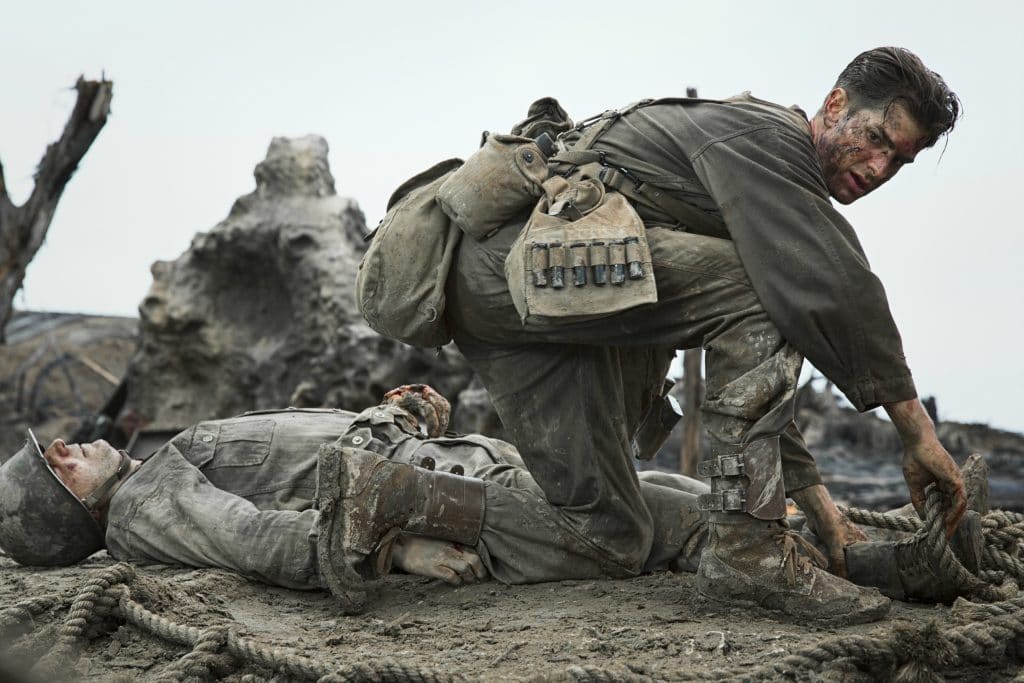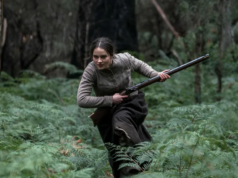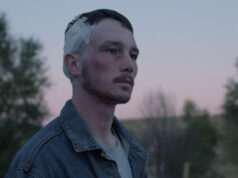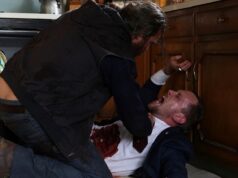Mel Gibson indulges in his main obsessions as a filmmaker and creates a magnificent film that couldn’t have been made by anyone else
Hacksaw Ridge (2016)
Directed by Mel Gibson. Written by Andrew Knight and Robert Schenkkan. Starring Andrew Garfield, Vince Vaughn, Sam Worthington, Luke Bracey, Hugo Weaving, Teresa Palmer, Ryan Corr, Rachel Griffiths, Richard Roxburgh, Luke Pegler, Richard Pyros, Ben Mingay, Firass Dirani, Damien Thomlinson, Matt Nable, Robert Morgan and Nathaniel Buzolic.
Whenever I see any film, I try never to keep expectations. As everyone should know by now, they are the number one cause for disappointment and can lead us to be pretty unfair to great movies, judging them by their cover. When I went to see Mel Gibson’s war epic Hacksaw Ridge, I had nothing to expect nor did I assume (like some people I know) that it would be a jingoistic piece made exclusively to praise the bravery of American soldiers and heroes (despite my vivid memory of Clint Eastwood’s American Sniper). But the film surprised me, and simply because it has so much that could go wrong in the hands of an incompetent director that I honestly cannot believe how well it works — or how it moved me beyond words.
What impressed me even more in Hacksaw Ridge, however, lies on a personal level. I really don’t remember having seen a film that challenged my cynicism in such an overt way in a long time. As tears gushed down my face and I stood there stunned by Gibson’s refusal not to give in to easy melodrama, I was taken aback by how his real-life protagonist was capable of such incredible selflessness amid horrible circumstances. In other words, it is as if I had almost forgotten that human beings were capable of so much good and kindness, and it felt like a well-deserved slap across my face to be proven wrong like this.
Based on an inspiring true story, Hacksaw Ridge begins like a typical Mel Gibson movie, full of graphic, violent images of soldiers burnt alive, blown apart and burst into pieces in a bloody war. We see corporal Desmond Doss (Andrew Garfield) being carried away on a stretcher, and the film jumps 17 years back in time to follow his life since he was a boy growing up near the Blue Ridge Mountains in Lynchburg, Virginia. That is when an incident reinforces Doss’s Christian belief that “thou shall not kill,” and 15 years later, at the outbreak of WWII, he enlists in the army to serve as a medic but refusing to use any weapon — and when Doss’ unit is eventually deployed to the Battle of Okinawa, he becomes a true hero without firing a single shot.
Consider how many people will read “Christian belief” and “hero” in the previous paragraph and roll their eyes. After Gibson’s proselytizing bloodbath The Passion of the Christ (2004), I quite understand that, and his religiosity is also evident here (despite his being a hardcore Catholic and Doss a Seventh-day Adventist). Gibson makes a film about miracles, but while I’m not religious at all, I couldn’t help being moved by the sight of a man ascending towards the sky as if to meet his God. Imagine what a disaster this could have been if it was made by someone like Michael Bay. But Gibson is a crazy genius who doesn’t let any of his characters become one-dimensional (not even Doss’s alcoholic father, which would have been so easy).
Another constant in his films has almost always been the graphic amount of violence. In Hacksaw Ridge, it is no different. Gibson evokes the horror and full insanity of war by showing us blown-out guts, severed parts of corpses, decapitated heads full of worms, rats devouring torn-out dead bodies and even a gut-wrenching moment when two enemy soldiers scream hysterically at each other with a grenade about to explode between them. All that is intensified by an astonishing sound design (and mixing) that puts us right there in the battlefield as bullets whizz around us and deafening explosions make us feel like in the middle of hell — and this proves essential as Doss’s actions become tense and touching in the same proportion.
Being a conscientious objector who refuses to bear arms and yet is determined to save people as his way to “serve,” Doss is played by Andrew Garfield as a brave young man who would rather miss his own wedding and be thrown into jail before betraying his strong principles. Garfield nails it with a most wonderful balance between innocence, conviction, kindness (even to an enemy soldier) and frustration when not able to save someone. His performance is a lesson in subtlety, from a slight tremor on his lower lip at one moment to the silent resilience he displays in the face of bullying — and it is almost impossible not to love him when he tells a soldier in need that he is not going anywhere or when he begs God to help him save one more.
Garfield’s chemistry with his co-star Teresa Palmer, who plays Doss’s girlfriend Dorothy Schutte and looks so much like Kristen Stewart, is also important to establish our connection with their characters, while Hugo Weaving is fantastic as Doss’s war veteran father who hates himself and drowns his sorrows in booze. The casting, by the way, is so good that even the two boys who play Doss and his brother in the 1920s look a lot like their older versions. When the action moves to Fort Jackson, it is Vince Vaughn who steals the show as Sgt. Howell and brings to mind R. Lee Ermey’s character in Full Metal Jacket (1987), inventing hilarious nicknames for the soldiers, calling someone a “naked degenerate” and asking him if he has “ever looked into a goat’s eyes.”
And if Sam Worthington delivers a solid performance, going from a cynical man who states that “the United States Army does not make mistakes” to finally seeing Doss in a completely new light, Luke Bracey has the chance to shape the bully Smitty Ryker as a surprisingly three-dimensional character — and the conversation he has with Doss in a foxhole during the night is my personal favorite moment in the entire film, showing two very different men who start to understand each other.
And Hacksaw Ridge is not only impressive when we see, for instance, the striking sight of soldiers climbing up a high wall but also in its smaller details, like the exquisite production design at the garrison using shades of green to illustrate the spirit of unity and brotherhood among the soldiers. There is so much sensibility in this magnificent film that it may be hard to believe that it was made by the same man who got himself involved in so much controversy in the past years. But Gibson is a crazy genius.





